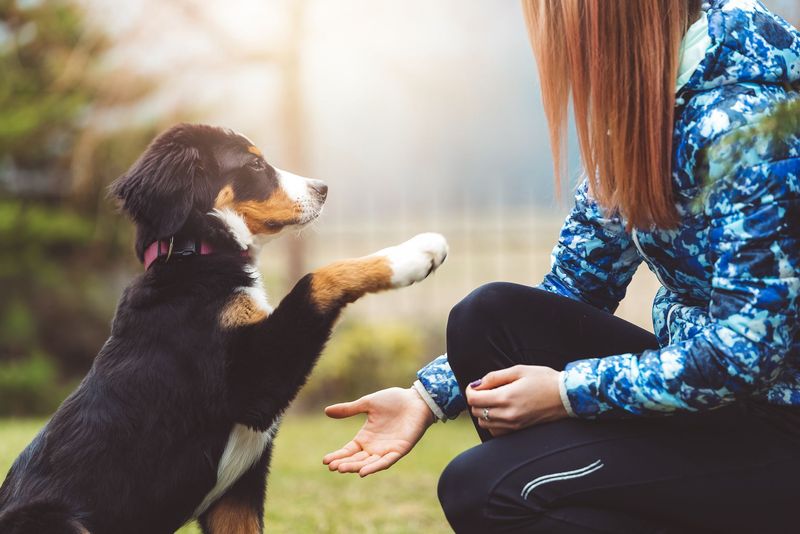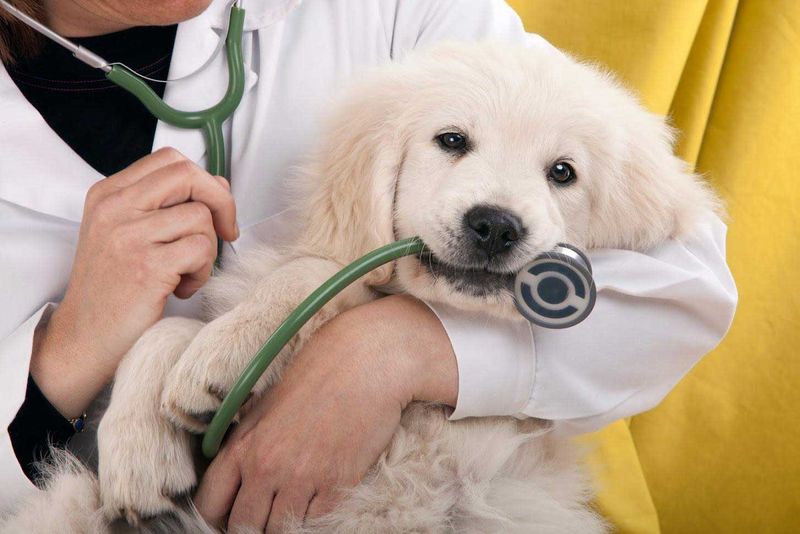Bringing a new puppy into your home is an exciting time filled with joy and anticipation. However, experienced dog breeders have insights that they wish every potential puppy owner knew before making such a life-changing decision.
From understanding the commitment involved to preparing for the unexpected challenges, these tips will guide you in making an informed choice. By being well-prepared, you’ll ensure a smoother transition for both you and your new furry friend.
1. Puppies Need Time And Attention

Many new puppy owners underestimate the amount of time and attention these young dogs require. Puppies, like infants, need constant supervision and interaction to thrive and develop properly. This includes regular feeding, potty training, and socialization sessions.
Missing out on these critical early stages can lead to behavioral problems down the line. Moreover, puppies have boundless energy and a curious nature, necessitating regular playtime and mental stimulation.
Without these, they may resort to destructive behaviors such as chewing furniture or shoes. Providing them with engaging toys and activities helps manage their energy effectively. If you’re considering adding a puppy to your family, it’s crucial to assess your daily schedule and commitments.
Ensuring that you have enough time to dedicate to training, playing, and bonding will set the foundation for a happy, well-adjusted adult dog.
2. The Importance Of Training

Training is not just about teaching your puppy to sit or stay; it’s about building a foundation for lifelong behavior. Early training helps establish boundaries and reinforces good habits, making life more enjoyable for both you and your dog.
Professional classes or trainers can be invaluable in this process. Positive reinforcement is key to effective training. Rewarding your puppy with treats, praise, or playtime for following commands encourages them to repeat those behaviors.
Consistency and patience are essential, as puppies may take time to learn. Start training your puppy as soon as they arrive home, focusing on basic commands and socialization skills. This early investment in their education will pay dividends in the form of a well-mannered, obedient adult dog.
Remember, training should be a fun and bonding experience for both you and your puppy.
3. Vet Visits And Healthcare

Regular veterinary visits are a cornerstone of responsible puppy ownership. Puppies require a series of vaccinations to protect them from common diseases, along with routine health checks. Establishing a relationship with a trusted veterinarian is crucial for your puppy’s health and well-being.
You’ll need to budget for vaccinations, deworming, and flea prevention treatments. Additionally, spaying or neutering your puppy is often recommended to prevent unwanted litters and health issues. Healthcare doesn’t end at the vet’s office.
Daily care, including proper nutrition, exercise, and grooming, plays a vital role in your puppy’s overall health. By staying informed and proactive about your puppy’s healthcare, you set the stage for a healthy, happy life.
4. Understanding Breeds And Their Needs

Different dog breeds come with unique characteristics and needs, influencing their compatibility with your lifestyle. Understanding these differences is essential before selecting a puppy. Consider factors such as energy levels, grooming requirements, and potential health issues.
Some breeds may require extensive exercise and mental stimulation, while others are more relaxed and low-maintenance. Researching breeds thoroughly helps in making an informed decision that aligns with your living situation and activity level.
Consulting with breeders or pet professionals can provide valuable insights into which breed might be the best fit for you. Remember, a well-matched breed to your lifestyle will lead to a more harmonious relationship and a happier pet.
5. Socialization Is Crucial

Socialization is a vital aspect of your puppy’s development, exposing them to various people, environments, and other animals. This process helps prevent fearfulness and aggression, fostering a well-rounded and confident dog.
The critical window for socialization is between three and fourteen weeks of age. During this time, introduce your puppy to different experiences in a controlled and positive manner. Puppy classes and playdates with other dogs are excellent opportunities for socialization.
Failure to properly socialize your puppy can lead to behavioral challenges that are difficult to correct later in life. By prioritizing socialization, you’re investing in your puppy’s future well-being and ease of adaptation to new situations.
6. The Financial Commitment

Owning a puppy means being ready to buy all kinds of puppy essentials, which is a significant financial commitment beyond the initial purchase price. Expenses include food, regular veterinary care, grooming, training, and pet insurance. Additionally, unexpected medical emergencies or behavioral issues can arise, adding to the costs.
It’s important to budget for these expenses and have a financial plan in place. Pet insurance can help mitigate some costs, providing peace of mind in case of emergencies. Consider setting aside an emergency fund specifically for your puppy’s needs.
By being financially prepared, you ensure that you can provide the best care possible without undue stress on your household budget.
7. Patience Is A Virtue

Bringing a puppy home requires a great deal of patience, as they are learning about the world around them. Accidents will happen, and mistakes are part of the learning process for both you and your puppy. Patience and understanding are crucial during these early days.
Consistency in training and routines helps your puppy learn what is expected of them. Celebrate small victories and progress, and don’t be discouraged by setbacks. Approach challenges with a positive attitude, and remember that patience will lead to a stronger bond between you and your puppy.
This foundation of trust and understanding will benefit the relationship for years to come.
8. The Reality Of Puppy Energy

Puppies are bundles of energy, and managing this energy is crucial for their health and your sanity. Regular play and exercise are necessary to keep them physically and mentally stimulated. Ignoring their need for activity can result in undesirable behaviors such as excessive barking or chewing.
Engage your puppy with interactive toys, games, and regular walks to help them expend energy constructively. Understanding and planning for a puppy’s high energy levels will lead to a happier, more content pet. By providing outlets for their boundless enthusiasm, you create a harmonious living environment.
9. The Role Of Diet And Nutrition

A balanced diet is essential for your puppy’s growth and development. Ensuring that they receive the right nutrients supports their overall health and well-being. Consult with your veterinarian to determine the best diet for your puppy’s breed, size, and activity level.
Proper nutrition can prevent health problems and contribute to a shiny coat and strong teeth. Be mindful of portion sizes and avoid overfeeding, as obesity can lead to serious health issues. Monitor your puppy’s weight and adjust their diet as needed.
10. Preparing For The Long Haul

Bringing a puppy into your life is a long-term commitment, often lasting 10 to 15 years or more. This decision should not be taken lightly, as your circumstances may change over time. Consider future plans and how a dog fits into them.
Factors such as moving, career changes, or family additions should be considered. Being prepared for these changes ensures that you can provide a stable home for your pet. Understanding the lifelong commitment of dog ownership will help you make an informed decision.
This foresight paves the way for a rewarding and fulfilling relationship with your canine companion.

